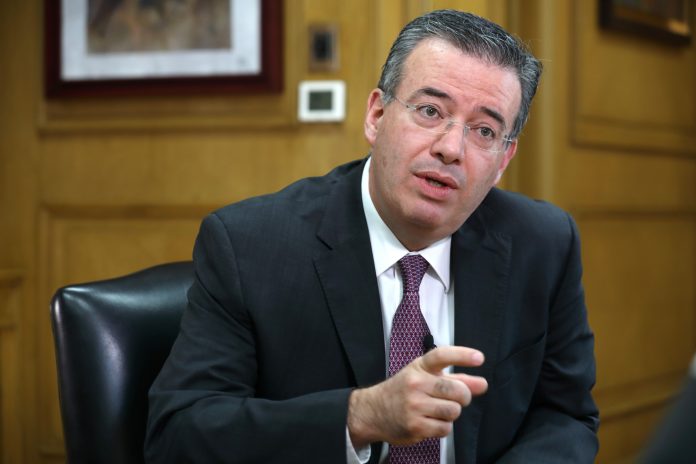ACAPULCO: Mexico’s central bank does not expect significant shocks to inflation in the short term, the bank’s governor said on Friday, unlike 2017 when fuel price hikes and US politics helped drive consumer price rises to a 16-1/2 year high.
New central bank governor Alejandro Diaz de Leon justified a hawkish stance on interest rates, however, by saying he could not rule out such shocks.
Under his watch, which began in December 2017, the bank’s governing board has hiked the key interest rate to 7.50 per cent, its highest since February 2009.
That was “a little above” the neutral interest rate level, Diaz de Leon said in an interview on the sidelines of a banking convention in the seaside resort of Acapulco.
Many economists view the neutral rate as one in which the economy is growing and inflation is stable. Interest higher than that could risk crimping growth.
At the start of last year, inflation was spurred in large part by gasoline and diesel price hikes of as much as 20 per cent as the government sought to end long-standing fuel subsidies.
The bank has said it sees inflation falling and moving toward the central bank’s 3 per cent target over the course of the year, reaching that level during the first quarter of 2019.
“The downward trajectory is gradual, but this obviously depends on not facing shocks that could have a transitory and significant impact on inflation,” Diaz de Leon said.
“We are not anticipating this, but it is a possibility.”
Inflation in Mexico cooled slightly more than expected in February, official data showed on Thursday, easing some pressure on the central bank to keep raising interest rates.
Diaz de Leon said the bank has been “very prudent in giving forward-looking guidance on interest rates” due to the uncertainty the Mexican economy is facing.
Mexico’s peso currency, and consequently inflation, has been hit by US President Donald Trump’s frequent threats to rip up the North American Free Trade Agreement (NAFTA), which underpins much of Mexico’s export-driven economy.
Diaz de Leon said the bank’s base-case scenario is for NAFTA to continue, but with changes.
Trump pressed ahead on Thursday with steep import tariffs on steel and aluminum but exempted Canada and Mexico in an attempt to pressure them in the ongoing NAFTA talks.
Diaz de Leon said that trade protectionism poses a risk to economic growth and inflation in Mexico.
“It is clear that the external situation is an additional layer of uncertainty associated with these (protectionist) measures and we will pay close attention to how they evolve.”























